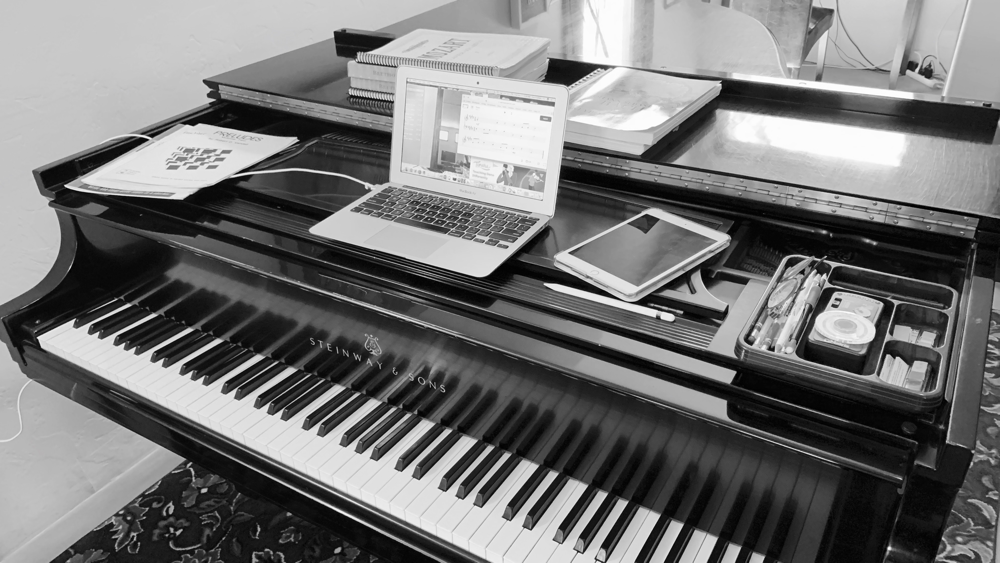Advice for Balancing Family and Profession When Working Remotely

I once started a joint conference presentation by saying, For the past few years I’ve been collaborating with this guy I met on the internet. It was actually the truth. There were laughs, like I was joking. But, I wasn’t. My colleague and I had just met face to face around noon two days before. It did seem bizarre and a bit out of character after I said it, but up to that time it had seemed completely normal.
Cyberspace and modern technology have made working from different locations totally possible. I have Skyped, Facetimed, phoned, texted, Zoomed, Google Met & Doc’ed, and Dropboxed with colleagues and students from many cities and countries around the world―from Africa, to England, to Tucson Arizona. When people walk into my studio for the first time, they often say, “I know this room!”
When everyone is working from home at both ends of a call it can get hectic and frustrating really fast. My daughter sent me the following text when I asked her if she had advice on working remotely with her kids at home, 1. It 2. Is 3. Impossible 4. To 5. Do (yes, she has always had a wicked sense of humor.)
I know a lot of others have given wonderful advice about platforms and how to set up your video and audio. I want to talk about making working remotely as smooth and respectful as possible both as a professional and a family member. Please take care and remember to think of this as an opportunity for growth even though it may turn your world upside down and inside out for a bit.
Scheduling and Interruptions
- Allow for time in between lessons or meetings—almost like you would for travel. We often schedule lessons pretty much back to back. But, taking a call or joining a meeting can take a few minutes. Email or text a meeting code to initiate the session. That way, if you’re delayed, you can let them know you are running behind and their call won’t interrupt the lesson you are giving.
- Give yourself breaks. Once a call or meeting begins, it’s not practical to excuse yourself for a minute to grab a glass of water, check on your kids, or use the necessary. It’s harder to say, practice that a moment and play it for me when I get back.
- Tell your family that you are not to be bothered when you are teaching except in the case of a real emergency. For our kids, the example was an airplane flying through the living room. They were really very good at distinguishing when to interrupt and what could wait. Once, I heard my older daughter on the phone asking a telemarketer which color dress and shoes she should put on her doll. Now, we can just enable Do Not Disturb.
Kids Have Remote Work Too
- If both you and your partner are working from home, find a way to take shifts working and parenting. This is especially important with younger ones who need constant attention even when you have responsible older children in the family.
- If you have a young elementary age child who is still building the skills to do written schoolwork independently, ask a Grandparent or other trusted adult to help them with it remotely. You will need an extra device or desktop if you or your partner are conferencing with others at the same time.
Don’t Be Afraid to Make Some Hard Decisions
- Time is a resource. Practice self care or you will get burned out. You may need to make some hard decisions to balance your family and professional life. Allow yourself some flexibility in scheduling. In a pinch, adults and teens can manage with a lesson every 2 weeks. With messaging and apps like Tonara Studio, it is totally possible to keep in touch between lessons that are spaced further apart. If you need a week off, take it. With Zoom, you can conference in several students for partner and small group lessons to make best use of your time and keep everyone engaged. Remember, many families are in the same boat. Parents and kids completely understand and want to work with you for the best in their continuing musical journey.


